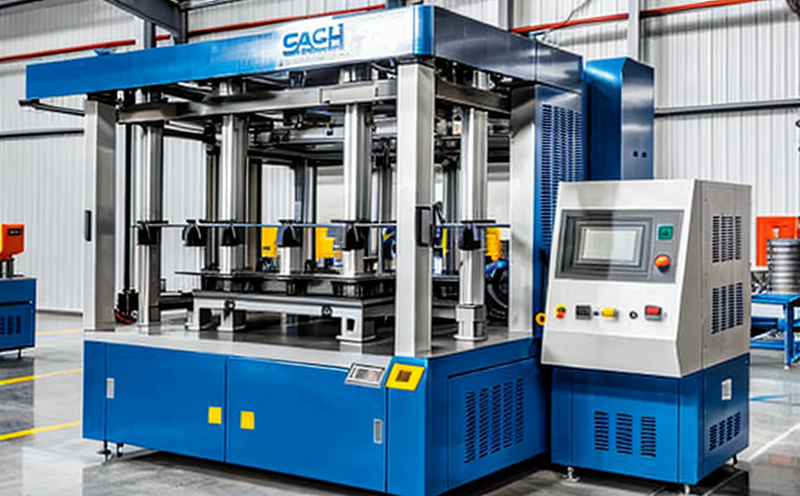Mechanical strength testing for high-performance food packaging
The Unseen Hero of Food Packaging Mechanical Strength Testing for High-Performance Containers
In the world of food packaging, the demand for high-performance containers is on the rise. Consumers expect innovative, sustainable, and safe solutions to protect their favorite foods from spoilage and contamination. To meet these expectations, manufacturers turn to advanced materials and designs that promise to withstand the rigors of transportation, storage, and handling. However, only one thing stands between a products success and failure its mechanical strength.
Mechanical strength testing for high-performance food packaging is an essential laboratory service provided by Eurolab, a trusted leader in material characterization and analysis. In this article, we will delve into the world of mechanical strength testing, exploring its importance, benefits, and applications in the food packaging industry.
What is Mechanical Strength Testing?
Mechanical strength testing involves evaluating the ability of materials or containers to withstand various forces without compromising their integrity. This includes assessing tensile strength, compression strength, flexural strength, and impact resistance. Eurolabs mechanical strength testing services utilize advanced equipment and techniques, such as drop weight impact testers, tensiometers, and creep testers, to simulate real-world conditions and provide accurate, reliable results.
Why is Mechanical Strength Testing Essential for High-Performance Food Packaging?
In the food packaging industry, mechanical strength testing plays a critical role in ensuring product safety, efficacy, and compliance with regulatory requirements. By understanding the mechanical properties of containers, manufacturers can
Ensure product integrity Prevent damage to products during transportation, storage, or handling, reducing waste and improving customer satisfaction.
Prevent contamination Prevent packaging materials from transferring contaminants to food products, maintaining their quality and safety.
Meet regulatory standards Comply with international regulations, such as FDA guidelines for food contact materials, by demonstrating the mechanical strength of containers.
Enhance brand reputation Convince consumers that products are made with high-quality, reliable materials, fostering trust and loyalty.
Advantages of Mechanical Strength Testing for High-Performance Food Packaging
Eurolabs mechanical strength testing services offer numerous benefits to manufacturers in the food packaging industry. Some key advantages include
Cost savings Prevent costly product recalls and lawsuits by identifying potential issues before they reach consumers.
Increased efficiency Reduce production cycles, as containers that meet mechanical strength requirements can be optimized for performance and reduced material usage.
Improved supply chain reliability Strengthen relationships with suppliers and logistics partners by demonstrating the robustness of containers under real-world conditions.
Competitive edge Differentiate products from competitors by showcasing their unique features, such as enhanced barrier properties or improved durability.
Key Benefits of Mechanical Strength Testing
Here are some key benefits of mechanical strength testing for high-performance food packaging
Enhanced product protection Protect delicate contents from damage during handling and transportation.
Increased shelf life Extend the lifespan of products by ensuring containers can withstand storage conditions.
Compliance with regulations Meet or exceed regulatory requirements for food contact materials, such as FDA guidelines.
Improved brand reputation Demonstrate a commitment to quality, safety, and customer satisfaction.
QA Frequently Asked Questions about Mechanical Strength Testing
Q What types of containers can be tested using mechanical strength testing?
A A wide range of containers, including plastic, glass, metal, and composite materials, can be evaluated for their mechanical properties.
Q How do I choose the right testing method for my containers?
A Consult with Eurolabs experienced team to select the most relevant testing methods based on your products specific requirements and regulatory needs.
Q Can mechanical strength testing be performed on-site or in-house?
A No, mechanical strength testing typically requires specialized equipment and expertise available only in a laboratory setting. Leave it to the experts at Eurolab for accurate, reliable results.
Q How long does mechanical strength testing take?
A The duration of testing varies depending on the method and container type. Typical testing times range from a few hours to several days or even weeks.
Conclusion
Mechanical strength testing is an essential service for manufacturers in the high-performance food packaging industry. By understanding the mechanical properties of containers, businesses can ensure product integrity, prevent contamination, meet regulatory standards, and enhance their brand reputation. Eurolabs comprehensive mechanical strength testing services provide accurate, reliable results to help companies overcome challenges and achieve success in a competitive market.
Dont let your products fate be decided by chance. Trust the expertise of Eurolab and take control of your containers mechanical properties today.




